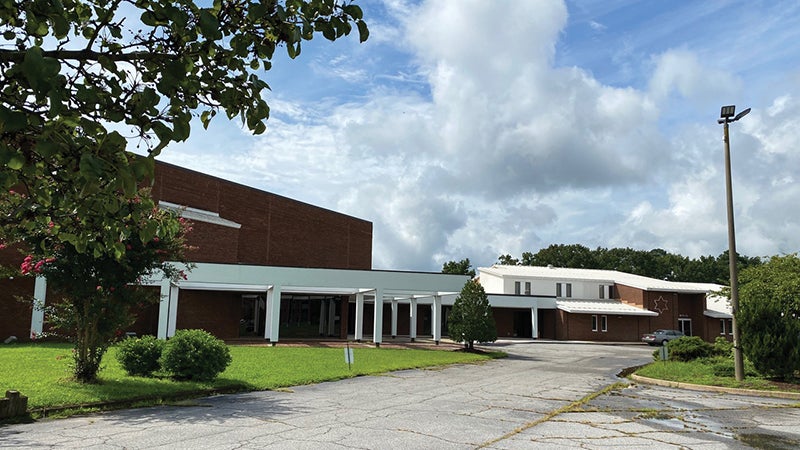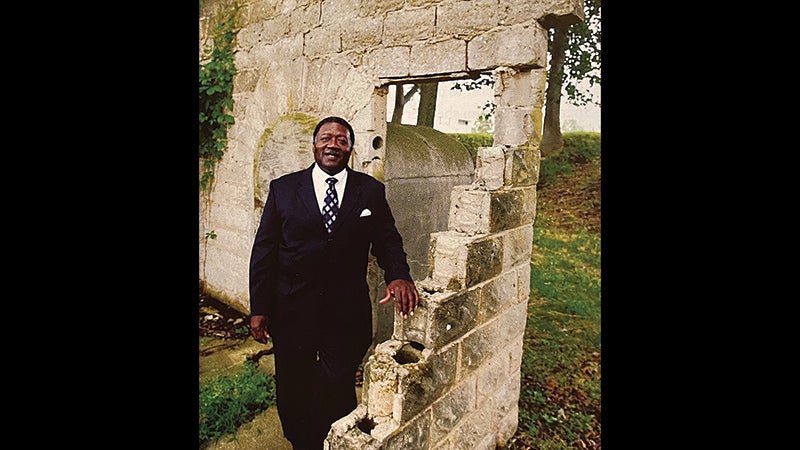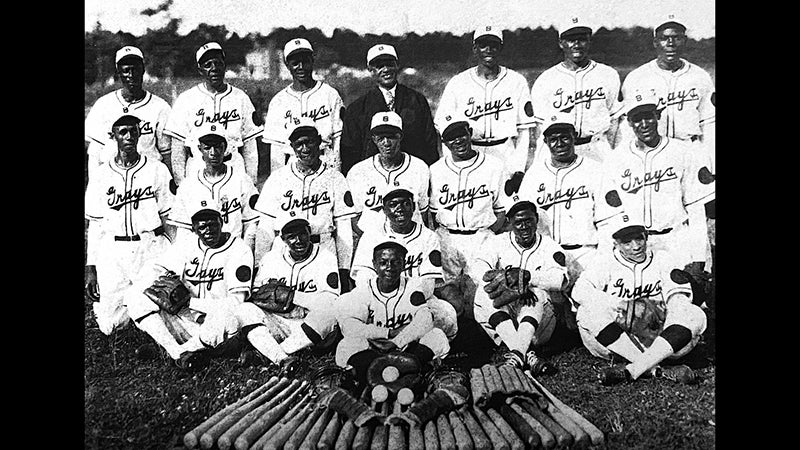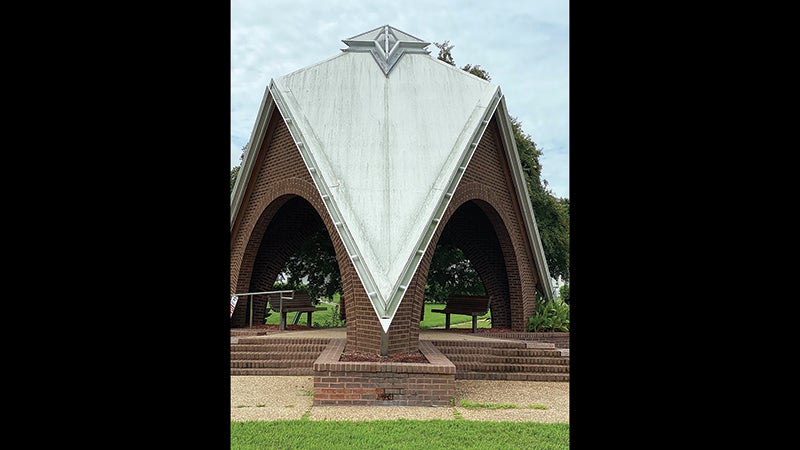Belleville celebrates a century
Published 7:37 pm Wednesday, September 15, 2021
|
Getting your Trinity Audio player ready...
|
Story by Phyllis Speidell
Photos by John H. Sheally II
Commuters traveling North Suffolk’s often traffic-choked Bridge Road have time to marvel at the ever-growing shopping areas, business parks, residential subdivisions and apartment complexes that followed the successful launch of the Harbour View planned community 30 years ago.
What the passersby might not recognize in that mix, however, are the remaining landmarks of Belleville, the area’s first planned mixed-use community that predated Harbour View by more than 60 years.
Just over a century ago, the orphan son of an African American Buffalo soldier visited North Suffolk with a vision in mind. William Henry Plummer, in his mid-30s, an ordained minister and executive leader of the Church of God and Saints of Christ, was there to look over 40 acres of prime farmland purchased by the church’s founder, Prophet Williams Saunders Crowdy, in 1903.
The fledgling church, struggling financially, had lost the acreage in a 1909 auction. John Eberwine, a local white farmer who had been the high bidder, still held the land when Plummer visited in 1917. When he heard Plummer’s dream to redeem the land and realize Crowdy’s vision of a self-sufficient homeplace for church members, the farmer agreed, over some local resistance, to sell the land back. Cleaton Rabey, a local white attorney, also befriended Plummer and helped finalize the sale in 1919.
The rest, as they say, is history, although perhaps little known among newer residents.
One of the more recent landmarks, Temple Beth El, is the international headquarters of the Church of God and Saints of Christ, and one of four of the church’s tabernacles in Virginia and one of 35 across the country and Jamaica. Prior to the COVID-19 pandemic, the tabernacle filled for Saturday Sabbath and holy day services.
Further along Bridge Road, Temple Beth El’s circa 1923 original worship center, a long white building with a round Star of David window, faces the highway. An old well in a nearby ravine dates to the 1700s and was supplemented by other artesian wells drilled by early Belleville residents. On the other side of Bridge Road, two well-tended cemeteries continue to guard the remains of church leaders and members.
Among those departed are some of the skilled craftsmen and women Plummer recruited from the church’s tabernacles in Massachusetts, Maryland, Pennsylvania, New Jersey and Ohio. They came ready to build and labored to raise farm buildings, a sawmill, an electric plant, a school, a dining hall, dormitories, a commissary, bath houses, garages, an auto repair shop, a music hall, tennis courts, an athletic field, a general store, a bakery, a tailor shop, a carpenter shop, offices and a printing plant.
Over the next few years, Plummer managed to buy six more area farms and a fishing boat, the Alice Lee, that provided food for the Saints, as the church members are known. At its peak, according to Elder Ezra Locke, superintendent of Temple Beth El, Belleville had seven farms, totaling more than 900 acres, and up to 500 residents.
Inspired by Plummer’s childhood as an orphan and his struggle to gain an education, the community, known to the Saints as Canaan Land, also included the Belleville Industrial School and the Widows and Orphans Home.
Belleville was renowned for its a capella group, the Choice Singers, who entertained throughout Hampton Roads and were a regular feature at the annual Tidewater Fair near downtown Suffolk. Belleville also fielded a popular baseball team, the Belleville Greys, that competed with the Negro League and drew 2,000 to 3,000 spectators to the Sunday games. The team was well regarded, with its own farm teams, the Yellowjackets, all eager to be called up.
Although the mostly self-sufficient Belleville survived the Depression era, some residents sought work outside the community or returned to their former homes. World War II took another toll on Belleville, drafting many younger men into service. Soon after the 1941 Pearl Harbor bombing, Belleville created an observation tower for aircraft spotters. The station, atop a three-story retirement home, was manned around the clock by Belleville volunteers. The community also initiated a volunteer emergency squad.
A long post-war recovery led to an economic rebound launched in the 1980s with the advent of the BelleHarbour Redevelopment Committee.
The current tabernacle, completed in 1987, was built in two phases with offices, classrooms, a 1,000-seat multipurpose room and a large sanctuary. The Saints also built a senior housing complex and completed the Land Purchase Memorial, a brick shrine in the shape of the Star of David, commemorating the spot where Prophet Crowdy was inspired to buy the land.
The Saints also renovated the original tabernacle that had been built in 40 days in 1923. According to the late Rachel Presha, a member of the church who gained local celebrity as The Purple Lady, her carpenter father was one of a group of Saints who constructed the building after being recruited by Plummer to build Belleville.
The church’s appreciation of all musical genres led to its popular annual Summer Breeze Concerts. Thousands came to enjoy jazz, R&B and soul artists as well as legendary Motown groups including The Temptations, the Manhattans and the Stylistics.
In more recent years, the Belleville farmland flourished with real estate rather than crops. In 1996, the Saints opened the Levi Solomon Plummer Learning Center, an early childhood development center, now leased to Antioch Preschool and Academy. In 2007, the Saints opened a 120-room Comfort Suites hotel and leased other land across Bridge Road to Sentara for the Sentara BelleHarbour Medical Center.
On other of its lands, the church developed several residential complexes, offering attractive affordable housing for the general community as well as senior citizens and those in need of low-income or Section 8 accommodations.
Under the continuing leadership of Rabbi Phillip McNeil, Temple Beth El welcomes all to the diversity of the country’s oldest African American congregation that adheres to the tenets of Judaism. The church’s contributions to the community remain a testament to their love of neighbor and a tribute to Belleville, the first planned mixed-use community in North Suffolk.










